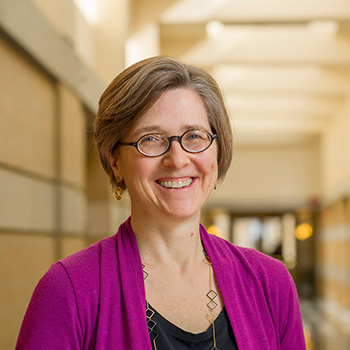Political elites take advantage of anti-partisan protests to disrupt politics

Protest movements that reject political parties have an unintended consequence, according to new research from the University of Notre Dame: They empower savvy politicians who channel them to shake up the status quo.
The findings provide a framework for understanding recent global political realignments and offer lessons for activists who want to make a meaningful impact. They are particularly relevant in an era when mass protests have become an increasingly common tool to voice dissent with powerful institutions and draw attention to overlooked issues ranging from climate and conflict to inequality and human rights.
Ann Mische, associate professor of sociology and peace studies at the Keough School of Global Affairs at Notre Dame, and Tomás Gold, a Notre Dame doctoral candidate and doctoral fellow at the Keough School’s Kellogg Institute for International Studies, co-authored the study, published in the American Journal of Sociology. The authors received funding from the Kellogg Institute and the Nanovic Institute for European Studies, as well as Notre Dame’s Graduate School.
“Despite protesters’ strong rejection of parties, political parties have not ignored the protesters,” Mische said. “In fact, many partisan actors have found ways to use this hostility to their advantage, disrupting ‘politics as usual’ and contributing to political reconfigurations that surprised both actors and spectators.”
Mische and Gold analyzed data from the Varieties of Democracy Project, which provides several authoritative ways to measure democracy. The international project, widely cited by scholars, is affiliated with the Keough School’s Kellogg Institute.
Using the data, Mische and Gold analyzed 12 case studies across Europe, Asia, and North and South America between 2008 and 2016, amid the fallout of the global financial crisis and the ongoing rejection of parties that were seen as unable or unwilling to confront it.

They found that in response to massive anti-partisan protests, these countries generally experienced one of four outcomes: internal factional challenges within highly established parties (e.g., Labour leader Jeremy Corbyn in the United Kingdom); the emergence of new or renovated parties (Podemos, or “We Can,” an anti-austerity Spanish party); the formation of new anti-incumbent party coalitions (the Broad Front UNEN and Cambiemos coalitions in Argentina); and the rise of extreme populist leaders (such as Jair Bolsonaro in Brazil).
Mische and Gold said these varied outcomes could be explained by looking at the project’s data measuring parties’ institutional strength, the degree to which parties were cohesive or fragmented, and the overall numbers of viable political parties competing for power.
They used a comparative approach that bridged insights from sociology and political science, drawing on datasets to determine how the combination of these three variables generated different opportunities for political actors to navigate the challenges to the status quo. They complemented this analysis with a process-oriented account of how party-movement interactions contributed to these diverging pathways.
“We focused on how political elites can take advantage of the fact that they are rejected by protesters,” Gold said. “That paradox lies at the heart of this paper.”
Ultimately, Mische and Gold said, the study could serve as a cautionary tale to protesters who reject political parties rather than trying to negotiate with them. This rejection can paradoxically undermine activist goals by amplifying distrust in institutions and paving the way for populist demagogues.
“Sometimes you need social movements to challenge entrenched systems and respond to the needs and aspirations of the people,” Mische said, adding that further research could help explore the dynamics of insider-outsider coalitions for enacting reforms.
“But if you reject working with the state, then you cannot influence the development of policies that are important for the things that you care about. You may, instead, empower autocrats who don’t share your values but are adept at weaponizing institutional distrust. Understanding this dynamic is important to working for change and to strengthening global democracy at a time when institutions are increasingly under attack.”
Originally published by Josh Stowe at keough.nd.edu on May 21.
Contact: Tracy DeStazio, associate director of media relations, 574-631-9958 or tdestazi@nd.edu
Latest Colleges & Schools
- Prioritizing prenatal care may decrease low birth weight outcomes in The Gambia, Notre Dame research findsA new study co-authored by University of Notre Dame researchers highlights the importance of prenatal care for improving the health of mothers and newborns, providing evidence that can inform policy.
- Partial peace deals may facilitate comprehensive accords, offering roadmap for policymakers, practitionersPartial peace agreements — deals that address targeted issues on the way to larger comprehensive accords — could provide a blueprint for peacebuilding policymakers and practitioners, according to new University of Notre Dame research.
- Notre Dame Law School launches new Veterans Law ClinicNotre Dame Law School is launching a new Veterans Law Clinic, dedicated to providing free legal assistance to U.S. military veterans in matters such as disability claims and appeals.
- City of Gary and Notre Dame’s Housing and Community Regeneration Initiative announce vision and action plan for downtown GaryThe City of Gary and the University of Notre Dame School of Architecture’s Housing and Community Regeneration Initiative announced a “Vision and Action Plan” for downtown Gary during a news conference Tuesday (May 27). The final report serves as a roadmap for Gary’s leadership to follow to reestablish the city’s building culture.
- Notre Dame Executive MBA offers scholarships to area leadersMichiana Forty under 40 honorees can receive $30,000 toward tuition for the Notre Dame EMBA program.
- Kenneth Scheve appointed dean of the University of Notre Dame’s College of Arts and LettersKenneth Scheve, the Dean Acheson Professor of Political Science and Global Affairs and the dean of social science at Yale University, has been appointed the I.A. O’Shaughnessy Dean of the College of Arts and Letters by University of Notre Dame President Rev. Robert A. Dowd, C.S.C. Scheve, who will also hold a tenured faculty position in the Department of Political Science, begins a five-year term as dean on July 1.













